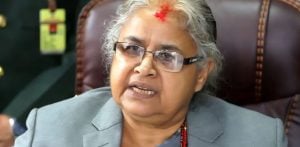"I think it stopped me from burning out completely.”
A breakup has long been considered a private matter.
But for some Gen Z people, that heartbreak is causing them to take time off work.
Maya, a 24-year-old graphic designer, confessed:
“I went through a brutal break-up last year and I just couldn’t face work.
“I was crying constantly and trying to pretend I was fine on Zoom calls, it was exhausting.
“I ended up taking a few days off and honestly, I think it stopped me from burning out completely.”
Maya isn’t alone. A survey by dating app Wisp found that 34% of Gen Z respondents aged 18 to 27 admitted to taking leave from work following a romantic break-up.
It’s a striking shift in generational attitudes and a sign that heartbreak might be joining the list of workplace taboos Gen Z is prepared to challenge.
While heartbreak is a universal experience, younger workers appear more willing to acknowledge how much it affects their professional lives.
In contrast to Gen Z’s 34%, just 20% of Millennials (aged 28-43) said they had taken time off following a breakup.
That figure drops further for older generations – only 11% of Gen X (aged 44-59) and 7% of Baby Boomers (aged 60-78) reported doing the same.
Dating app Wisp, which encourages in-person connections over endless swiping, says its research reveals how younger employees are leading a cultural change in workplace norms.
According to the app’s in-house dating expert, Sylvia Linzalone, the data reflects a growing emotional awareness among Gen Z, particularly when it comes to mental wellbeing.
She explained: “Gen Z has grown up with open conversations around wellbeing, and they’re more in tune with the impact relationships have on their emotional landscape.
“We talk a lot about sick days and stress leave, but heartache is a real, valid experience that can seriously derail someone’s focus and confidence.”
Two-thirds of all survey respondents admitted that romantic break-ups had negatively impacted their productivity at work.
And 38% said they had cried in front of colleagues following a relationship breakdown.
Linzalone argued that emotional tone shouldn’t be ignored.
She continued: “When your heart’s on the floor, it’s not always easy to sit through back-to-back meetings pretending everything’s fine.
“Taking time to process and recover isn’t weakness; it’s part of being human.”
The conversation also raises broader questions about how workplaces handle emotional wellbeing.
Traditionally, sick leave has centred on physical or mental health, but romantic distress is rarely seen as a justifiable reason to step away from the job. For Gen Z, though, that may be changing.
Wisp believes the findings reinforce the idea that romantic relationships are deeply embedded in our daily lives, and their impact doesn’t stop when we clock in.
And as Linzalone puts it: “Heartbreak hurts. Taking time to heal shouldn’t be taboo.”






























































